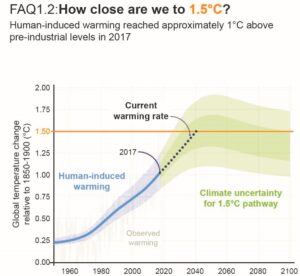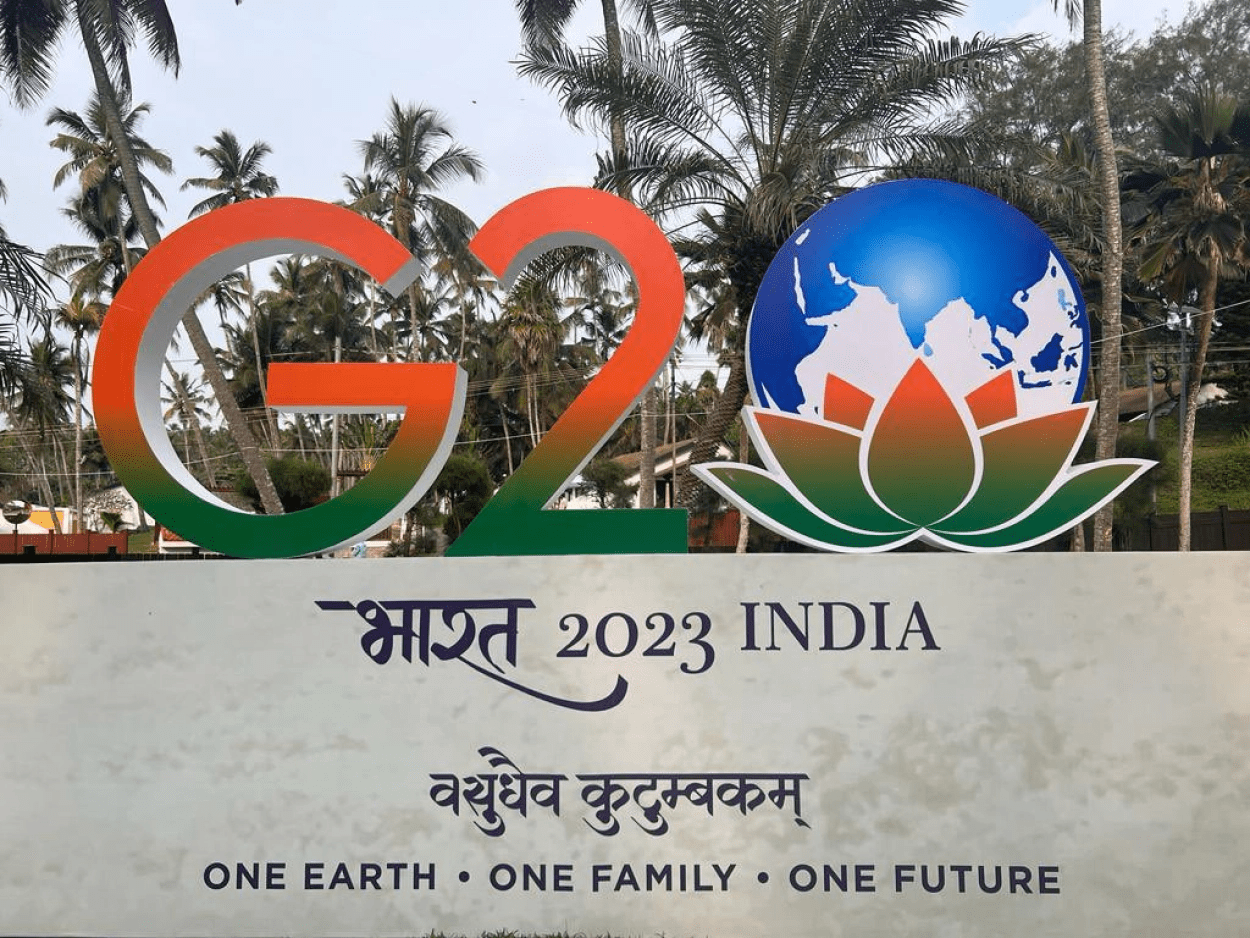Climate Justice & G20: Making the most of Modi’s moment
Rapidly unravelling first quarter of India’s leadership of G20 has witnessed major developments at global stage on climate change, chronic concerns on COVID and continued conflict between Russia and Ukraine. These triple crises are affecting geo-politics, world economic order and sustainable development goals of United Nations.
Gathering 20 of the world’s largest countries, G20 is by far the most influential body, with 85 pc of global GDP, over 67 pc of total population and 75 pc of global trade and 80 percent of global greenhouse emissions. Hence, besides the United Nations, it is G20 that represents the voice and concerns of the globe.
G20 started as wider and more inclusive group than G7 which was considered as ‘partitioned pack of parallel power’ to United Nations. Roots of G20 are still firmly ingrained in economic and financial cauldron, however, to be fair, the grouping has taken lessons from the United Nations’ gallant efforts on Millennium Development Goals, MDGs, and then Sustainable Development Goals or SDGs and learned hard way that the peace on the planet is essential for economic growth. Further, harmony with the nature ensures financial stability needed for the business and governments were those two key lessons. Partnership with global south is sine qua non for the peace process. G20 is indeed balanced representation of total 19 countries, developed and developing, plus EU. Besides the economic and population heft of G20 outlined above, the grouping is also responsible for 80 pc of global greenhouse emissions and, as a counterweight, is also home to 80 pc of world’s forest cover.
In this perspective, the G20 nations have the biggest responsibility towards global issues and challenges, and it is up to these nations and their leaders to offer workable solutions which the world can then approve through the appropriate mechanisms of the United Nations.
Unfortunately, the number of crises staring at the world is getting more and more interlinked and complex. Continued globalisation is making the crisis intertwined, be it inflation, unemployment, illegal migration, hunger, inequality, and social conflict. The list is endless and is complicated further by the engagement of G20 nations themselves in current conflicts in Europe and Pacific.
The first ever G20 meeting taking place in South Asia, surrounded by some of the G20 nations themselves with vested interests. India’s presidency, therefore, offers a unique opportunity to make transformational change in the world-order if there is political will. Prime Minister Narendra Modi, is a path-finder and he can make a big difference in troubled world-order by resolving some of the nagging challenges.
The recent events in the first quarter of 2023 were grossly side-lined by popular media or have remained invisible due to its apparent lack of mass appeal. More specifically , the two major developments on climate change should prompt Modi to take G20 agenda out-of-box and go beyond India centric conversation and take central stage amidst unfolding global scenario. Wider consultation and inclusive dialogue among those who matter would set the stage for final 2023 summit later in the year.

There are many issues facing the world today, but there is perhaps none more critical and challenging than climate change
Climate change is one of the most critical and challenging issues facing the world today Of the issues facing the world, nothing is perhaps more critical and challenging than climate change. It is about much talked about ‘climate justice’ that the world, notably the rich world, has admitted but done nothing about it. Modi has frequently highlighted climate inequality in a number of his speeches on international for a including UN. But it has remained quixotic concept, without any further moves. Here, however, there a movement from the most unexpected quarter. Instead of the heft of G20, the initiative came from the tiniest of nations, Vanuatu, an island nation in the Pacific. Thankfully, the proposal to United Nations General Assembly, mooted by Vanuatu, was backed by the group of 17 Small Island Developing States (SIDS) including four from South Asia. This was adopted by the UNGA and has now created a practical path to move from concept to reality and it is poised to make the sea of difference.
The SIDS, who are the worst sufferers of climate change, have been disillusioned and dejected by the existential threat looming large as their territory is sinking fast under rising sea-waters. These island states are reaching their limit of patience. The climate migration has already started with a significant part of their population moving to other nearby developed countries. The SIDS have decided to test the water of the UN’s ability to deliver justice as those who created and contributed the most still continue to aggravate the problem and negating the ‘polluter to pay’ principle. And the UN resolution seeks advisory opinion from the International Court of Justice on issue of climate injustice.
It is interesting to note that four of the G20 countries, the US, Russia, India and China, were not part of the 120 countries that explicitly co-sponsored the resolution. However, they did not oppose its adoption either.
Now, Modi has an opportunity to be with the SIDS by reassuring them that issue of climate justice is also an important issue for India and there not only closer to the heart of large developing countries like India. Small Island countries are also part of Vasudhaiva Kutumbakam, or world is one community, the operative mantra of India’s presidency of G20. Modi should proclaim that his slogan, Sabka Saath Sabka Vikas (development for all with cooperation from all) is not only national but also a global slogan. Modi should catalyse ‘inclusive’ cooperation at G20 summit by inviting some of the SIDS States like SIDS Vanuatu, Maldives, Sri Lanka and Singapore as special guests to G20, along with former President of Maldives and the current speaker of Maldivian Parliament Mohamed Nasheed and former Environment Minister of Norway Erick Solheim who strongly connects South Asia’s climate future to global peace.
Second event that should matter to G20 is the 6th Assessment of IPCC ( Intergovernmental Panel on Climate Change) called AR6. ‘Final bell’, ‘Shrill warnings’, ‘Battle lines are drawn’, ‘Can we really be back on track?’, were the messages flashed after AR6 was released. It is the last report before the planetary scale catastrophe is likely to set in by 2030, if the world does not bend down the rising curve of greenhouse gas emission. By 2030 global emissions should be reduced by 45 per cent as compared to 2010 level as per AR6.

Currently, global warming is about to exceed 1.5 degrees Celsius over pre-industrial levels
The limit of the global warming by 1.5 deg C above the pre-industry level is now about to be breached. AR6 clearly states that warming is already reaching 1.2 deg C. That limit was pledged in Paris Climate Agreement at the insistence of the very SIDs that are now seeking the opinion from ICG to deliver the Climate Justice for setting the new world order. The world is hanging on the cliff and G20 must now go beyond the debates and conferences on energy transition, carbon trading and climate resilience . They must now start accelerating energy transformation, renewable -energy trading and climate justice. The agreed promises of financial assistance to the developing countries, initiate massive mitigation of emissions along with stringent penal non-compliance measures are needed. G20 should even propose to become implementation arm of COPs under UNFCCC.
As the G20 Summit is coming just before the UN climate change conference, COP28 in UAE, it is another opportunity for Modi to seize the initiative and propel the G20 nations, notably the developed countries that are part of the body, not only to rapidly implement their commitments for cutting GHG emissions, but enhance them dramatically so that by 2030, the world can cut overall emissions by 45 pc as compared to 2010 levels, which is the latest and perhaps final recommendation of IPCC’s comprehensive status report, AR6, on global warming.
Modi, as the current leader of G20, needs to send a clear message, not by stating how India is contributing to the emission reduction but by bringing about systemic changes by inducting rigorous implementation mechanisms in the process of COP and UNFCCC and introducing compliance provisions in the Green Climate Fund, which has miserable record till now, having failed to replenish even 1 pc t of the agreed climate fund. There is also an urgent need to conduct deep-rooted financial reforms in World Bank, which has continued to fund power generation by fossil fuels
Modi should also invite young professional Sultan Al Jaber, the President-elect of COP28, to G20 Summit not only to lay out his vision for the meeting in the UAE, but to also engage him in global programme of ‘Climate Action’ as legacy of his presidentship. Masdar Solar venture was Al Jaber’s masterstroke, just like International Solar Alliance promoted by Modi was. As a visionary business leader, Al Jaber sees the future in energy-transformation by reducing the role of oil and gas industry through ‘system-wide transformation’ and by recanalisation of profits from Oil and Gas industry for GHG-free world.
Indeed, such transformation of mind-set and lifestyle is needed considering the fast closing window of to win the battle against the climate crisis. The ‘systemic transformation’ proposed by Al Jaber is a clarion call for the revolution in waiting. Modi can and must help facilitate the launch of this revolution at a global level at the G20 Summit.
By Rajendra Shende is a former Director UNEP, Founder Director Green TERRE Foundation, coordinating lead author,IPCC that won Nobel peace prize, IIT Alumnus










